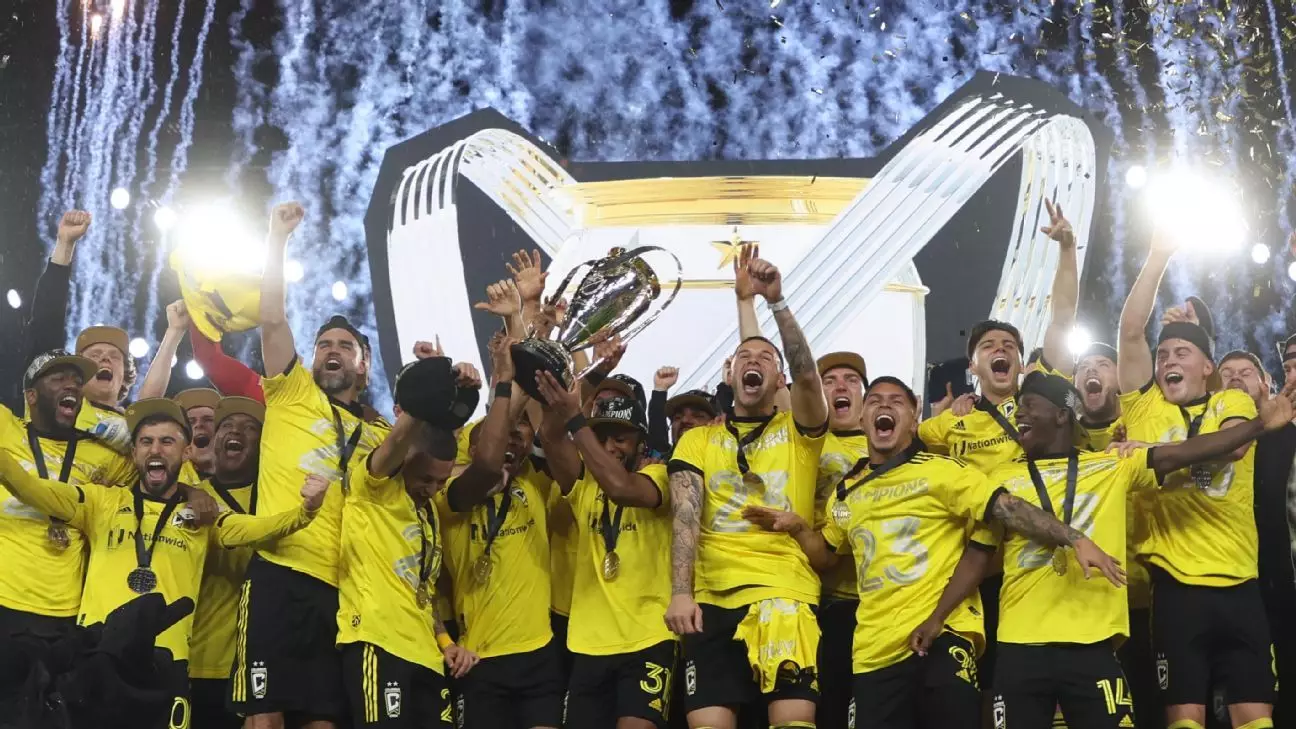The Major League Soccer (MLS) Cup, first contested in 1996, has grown into one of the most prestigious events in American soccer. Each year, this championship match culminates the playoffs, featuring the champions of the Eastern and Western Conferences. The winning team not only claims a coveted trophy but also secures a place in the Concacaf Champions Cup, underscoring the importance of this tournament in the broader context of North American soccer.
The inaugural MLS Cup was held on October 20, 1996, where D.C. United triumphed over the LA Galaxy with a close score of 3-2. This victory not only set the tone for the league’s early competitions but also laid the groundwork for rivalries and legacies that would shape the league’s future. In its early years, the MLS struggled to capture the public’s imagination and attract large audiences. However, this championship match quickly became a focal point around which the league could build enthusiasm and support.
One of the most striking aspects of the MLS Cup history is the dominance displayed by the LA Galaxy. The team has amassed a record five MLS Cup victories, marking it as the franchise with the most championships. Their victories spanned across multiple years, including titles in 2002, 2005, 2011, 2012, and 2014. The team has not only enjoyed success on the pitch but has also attracted high-profile players, including David Beckham, who enhanced the league’s visibility during his tenure. This combination of a winning culture and star power helped solidify the Galaxy’s place in MLS history.
Teams with Multiple Titles and Their Legacy
When examining the landscape of MLS Cup victors, it’s evident that seven teams have managed to capture the trophy multiple times. D.C. United, with their four championships, alongside Columbus Crew (three) and others like Sporting Kansas City and the San Jose Earthquakes (both two), illustrate the competitive spirit within the league. These franchises not only celebrate their individual successes but have also contributed to the building of a rich soccer culture in their respective markets.
The study of these teams provides insight into how organizational investment, managerial acumen, and player scouting can lead to sustained success. The competitive balance of MLS often surprises fans; while established teams like the Galaxy dominate headlines, other franchises have emerged as formidable competitors in their pursuit of the title.
Despite the success of certain teams, the fact remains that a significant portion of the active MLS teams (14 out of 29) has yet to taste championship glory. This statistic highlights the journey and struggle many clubs endure to reach the pinnacle of the league. Clubs such as FC Cincinnati and the New York Red Bulls have garnered support and dedication from their fan bases, yet they find themselves looking for pathways to success in a fiercely competitive environment.
Moreover, ten teams have never made it to the MLS Cup, which speaks volumes about the challenges in reaching the finals. The unpredictability of the playoffs coupled with tactical innovations and upsets means that every season offers both victory and heartbreak.
An essential part of the MLS Cup legacy is the recognition of outstanding individual performances. The MLS Cup MVP award has celebrated a range of players who showcased exceptional skill during the finals. From legends like Landon Donovan to rising stars like Cucho Hernández, these athletes have solidified their places in MLS folklore by shining on soccer’s biggest stage.
The MVP award highlights the personal stories woven into the narrative of the MLS Cup, emphasizing that soccer is not just about teams but also about the individuals whose talents and dedication can alter the course of a match.
The Philip F. Anschutz Trophy: A Symbol of Triumph
Awarded to the MLS Cup champion, the Philip F. Anschutz Trophy embodies the spirit of the league and its roots. Named after one of the co-founders of MLS, this trophy not only signifies victory but represents the dreams of soccer fans across North America. Each year, the trophy is a tangible goal for teams, symbolizing the aspirations of players and organizations alike.
As we look forward to future seasons, the legacy of the MLS Cup continues to evolve, reflecting the growing popularity of soccer in the United States and Canada. With each passing year, the excitement surrounding the league and its championship match strengthens, paving the way for new stories and heroes to emerge on the grand showcase of American soccer.

Leave a Reply